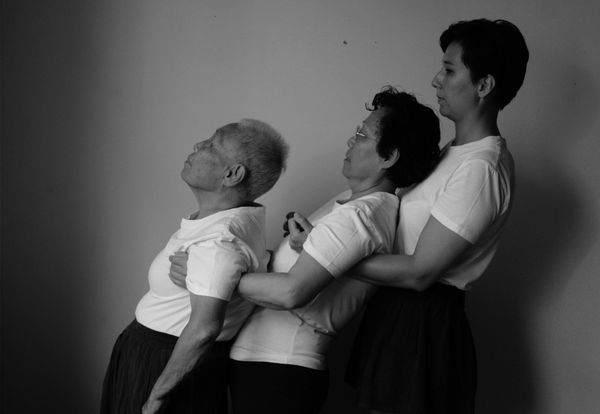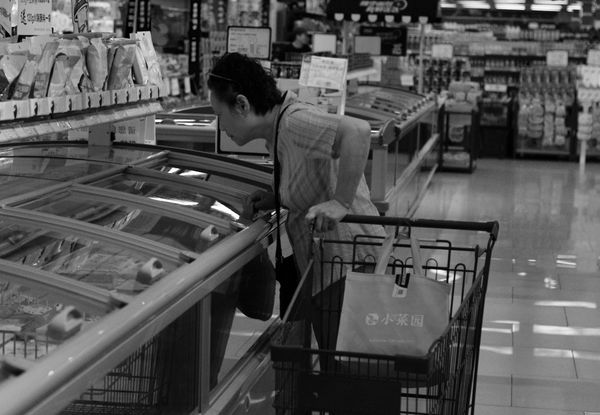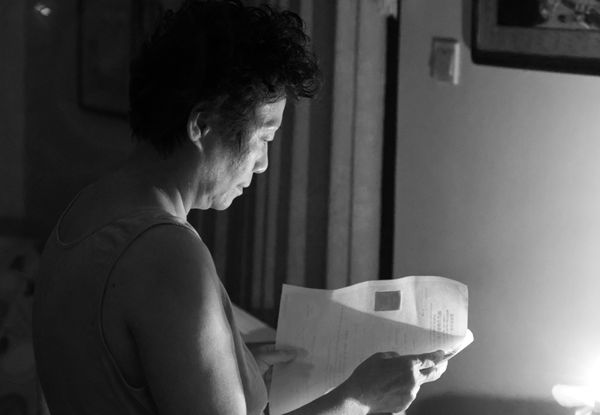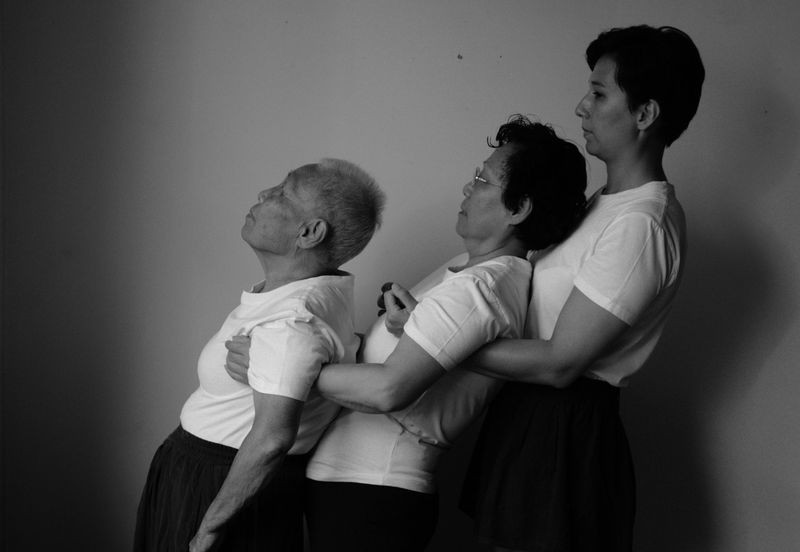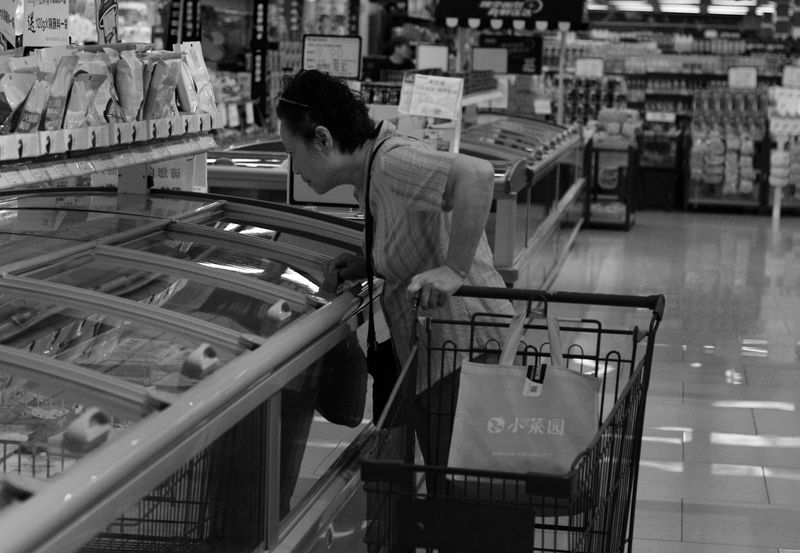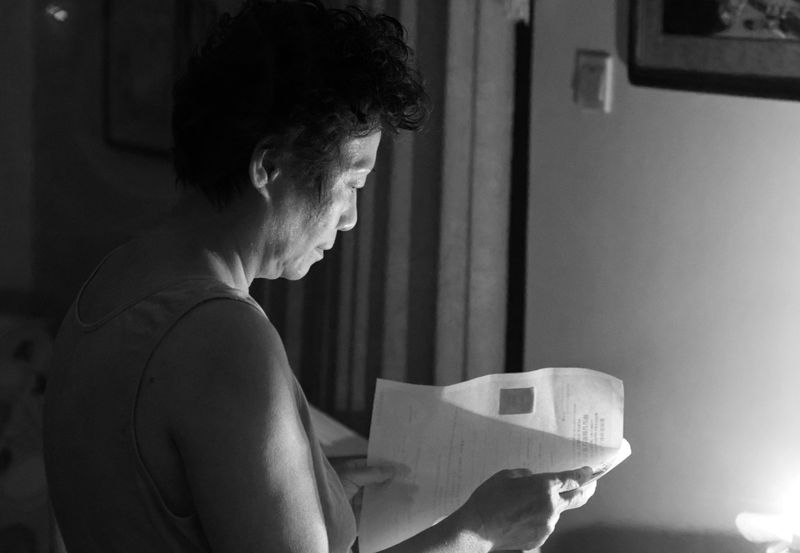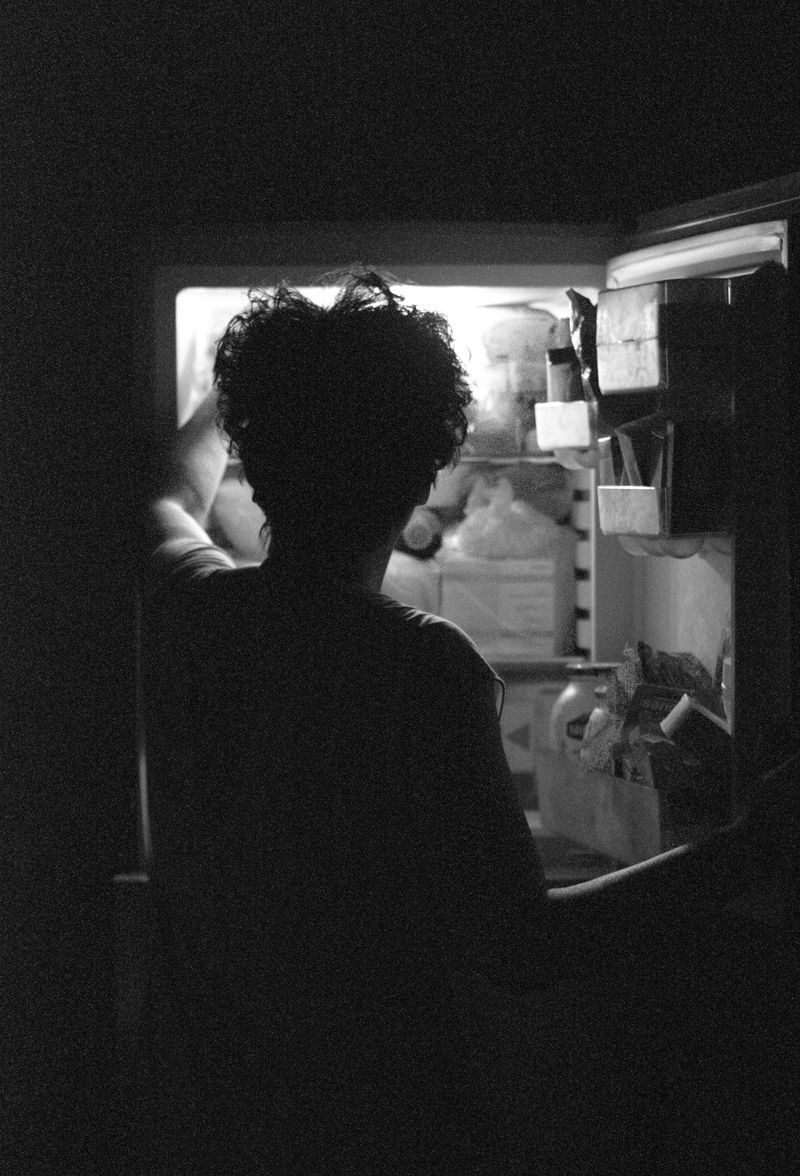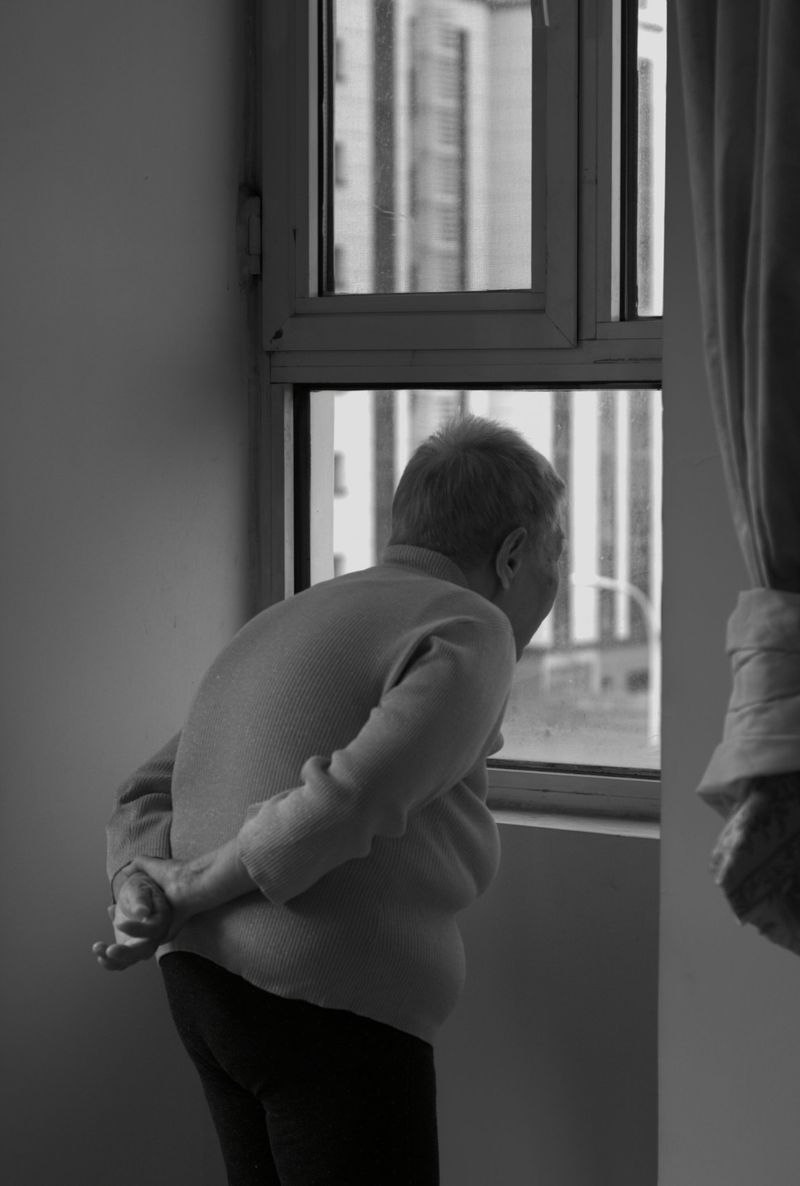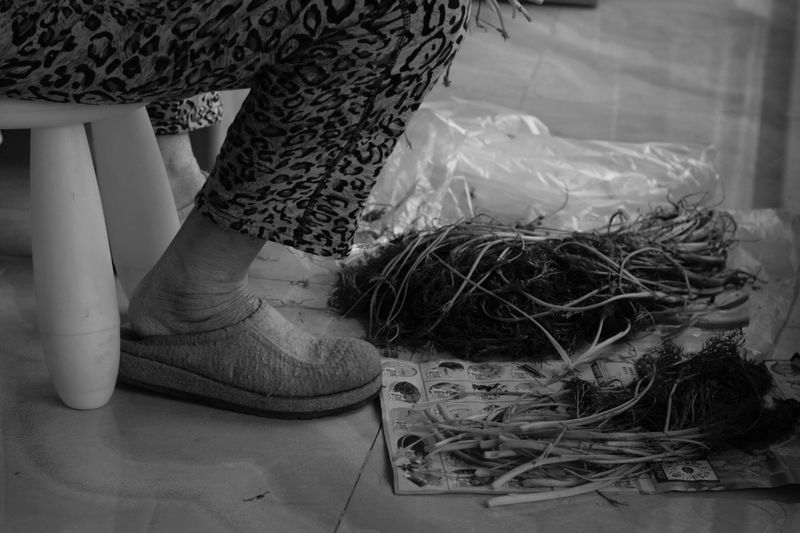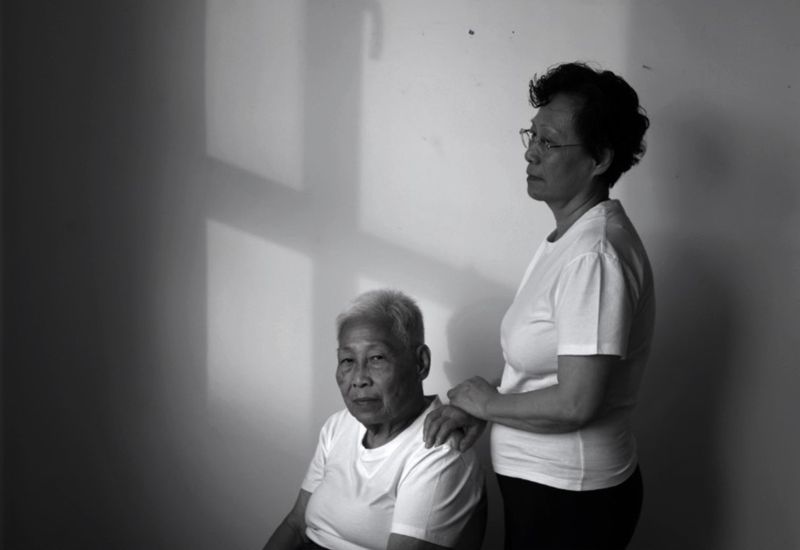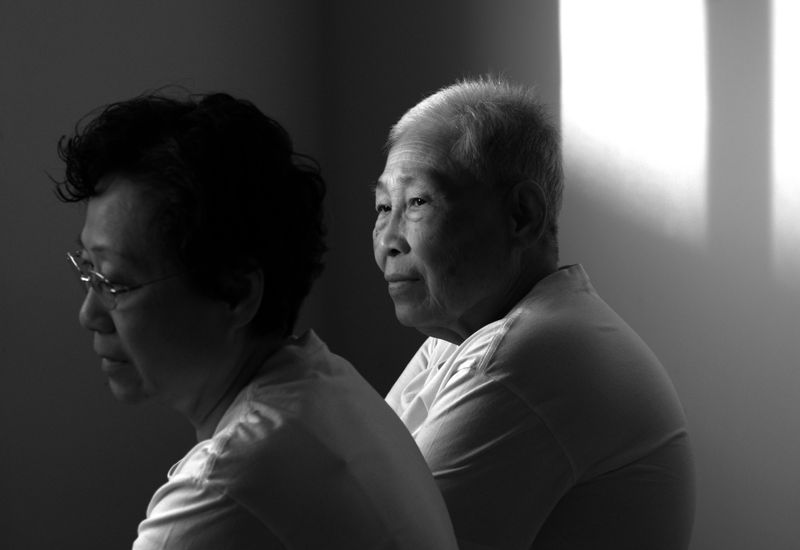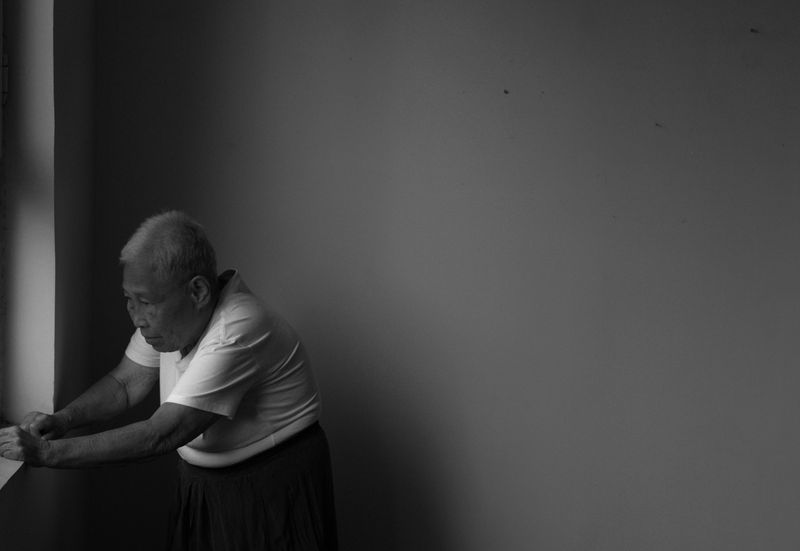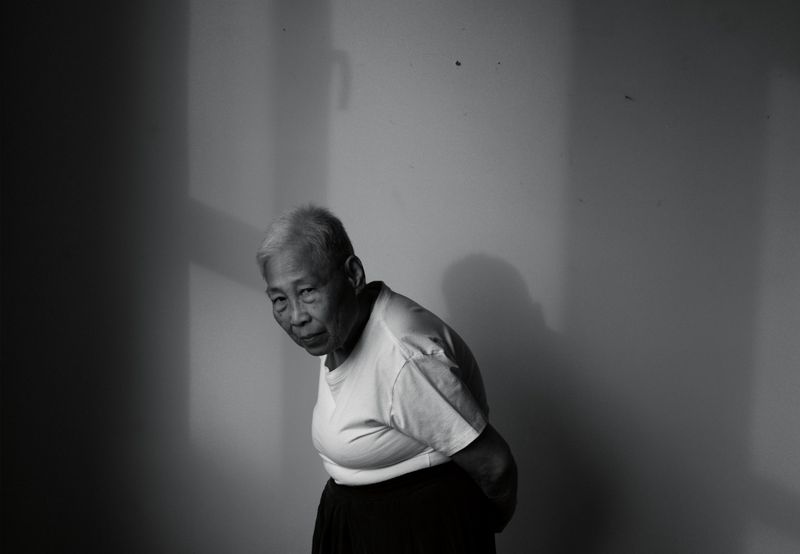Motherhood
-
Dates2023 - Ongoing
-
Author
- Locations Tianjin, China
Through staged portraits and daily rituals, the series reflects on my mother's bond with her mother, revealing migration’s solitude and the quiet power of care that sustains a family across distance.
For generations, mother–daughter relationships in my Chinese family have been marked by rupture and silence, deeply shaped by patriarchy and migration. My grandmother Laolao gave birth to four children during political unrest, and her desire to send them abroad for a better future only grew stronger. Not knowing that her desire for a better future would end my mother's medical career: in Germany her path as a senior physician was not recognized and she decided to take full care of her two children. This loss of identity, combined with poverty, racism, and authoritarian parenting, shaped my childhood and our difficult relationship.
Motherhood confronts these inherited fractures. For the first time in 20 years, my grandmother, mother and I lived under the same roof- During this 6-month stay I witnessed my mother Bin as a child and a care-giver, watching their distanced relationship, seeing Bin's uprootedness when it comes to daily life in China, it asks how empathy might dissolve the decades of lack that has shaped generations of women in my family. Lack of communication, lack of dedication and appreciation, lack of opportunities – can these broken bonds be mended, or must we learn to inhabit the fragile space between expectation and emancipation, pain and care?
Through staged portraits and everyday moments, the work traces the delicate threads of connection across time — from grandmother to mother, from mother to daughter. It reflects on the quiet power of care, the persistence of trauma, and the loss of identity and history through migration. At its core, Motherhood is a search for reconciliation: a visual dialogue between women, the migrated and the ones who stayed behind, longing for closeness, and the unfinished work of healing.
